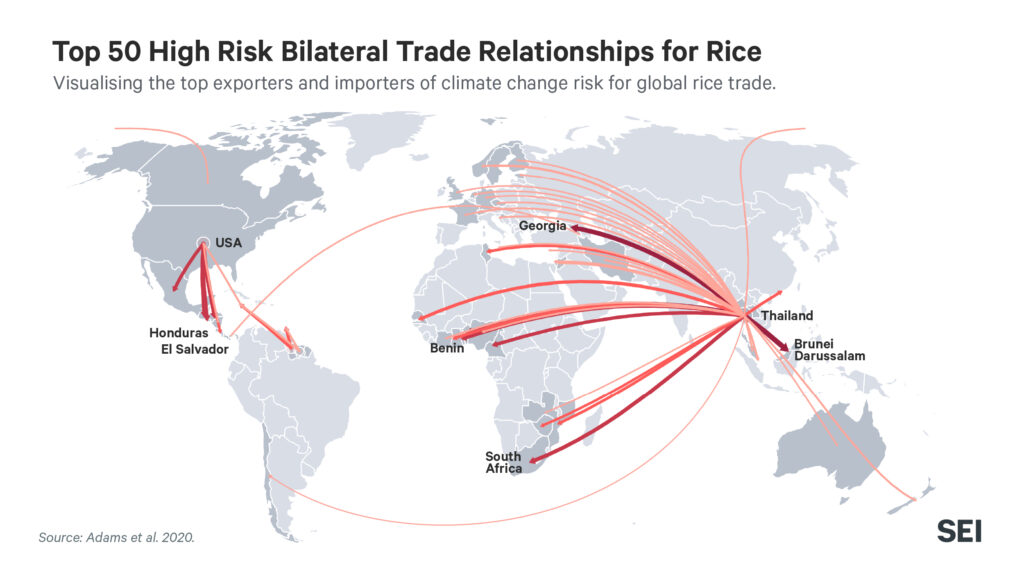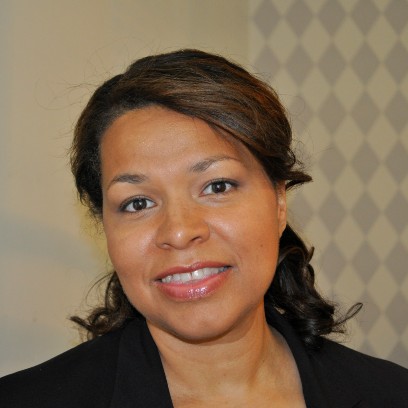A groundbreaking report by authors from SEI, Mistra Geopolitics and Adaptation Without Borders, reveals the climate risks to global trade in major agricultural commodities – and concludes that they constitute a serious global challenge. The authors of the report calls for urgent multilateral action.
Agriculture is one of the most exposed sectors to climate change. The report Climate change, trade and global food security – a global assessment of transboundary climate risks in agricultural commodity flows reveals for the first time in detail which countries are exposed to transboundary climate risks (TCRs) through agricultural trade and which countries are important sources of risk.
The report assesses six key commodities: staple commodities (maize, rice and wheat), highly embedded commodities (soy and sugar cane) and luxury commodities (coffee). Magnus Benzie, co-author of the report from SEI and Mistra Geopolitics said:
“As we anticipate increased impacts due to climate change, the global community needs to come together to assure market stability and allow food to be purchased at affordable prices, or risk social upheaval and new geopolitical challenges. ”
All countries at risk
The results suggest that all countries are exposed to transboundary climate risks, regardless of development, power or wealth. Countries in Europe and North America are both highly exposed to TCRs through foreign imports and can be major sources of risk for others who depend on their exports for food security.
While addressing climate risks has historically been understood as a challenge for developing countries and adaptation planning has often been conducted at a national, regional or local level, the report argues this framing of adaptation is out of date and insufficient for achieving the Paris Agreement’s Global Goal on Adaptation.

Climate change drives systemic risk
Overall the report concludes that traditional approaches to managing risk in supply chains, such as substituting high-risk links with more resilient ones, or hedging risk across a diverse spread of suppliers, are unlikely to prove effective over long term or more extreme scenarios. Climate change drives systemic risk and will occur everywhere at once. Countries need to work together via multilateral institutions and processes to achieve the mutually-beneficial goal of systemic resilience in global agricultural markets.
About the report
The report, Climate change, trade, and global food security: A global assessment of transboundary climate risks in agricultural commodity flows, is published by SEI, Mistra Geopolitics and Adaptation Without Borders. Authors within Mistra Geopolitics include Kevin M. Adams and Magnus Benzie, SEI.
Featured

Kevin Adams

Magnus Benzie
For further information, please contact:

Maria Cole




